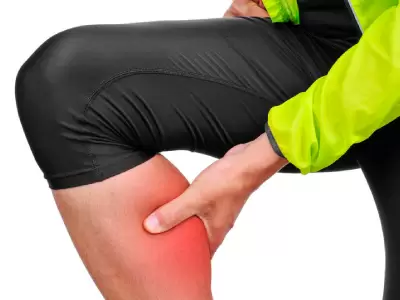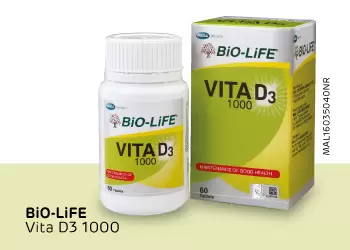
The Sunshine Vitamin
Apr 15, 2020
Introduction
“Stay at Home” is the slogan that everyone knows which has fundamentally alter our daily life and routine. You might be missing the day which you jog in the park, swim in the pool, walk your dog and many other activities which you can do freely under the sun. All these activities become unattainable when you need to follow the Movement Control Order (MCO) to prevent the spreading of COVID-19. Do you know that staying indoor could make you at risk of having vitamin D deficiency?
What is Vitamin D
Vitamin D is known as “sunshine vitamin” as the body is able to produce it in the skin through sunlight exposure. Sun UVB rays are the best source of vitamin D. Hence, staying indoor is inhibiting the body’s ability to produce vitamin D. This is due to UVB rays do not penetrate glass or tinted window. You could get vitamin D from food sources like salmon, egg yolks, cheese, and milk. However, it could be hard to get enough vitamin D through sunlight exposure and food alone, so taking a supplement can help.
Symptoms of Vitamin D Deficiency
Let’s have a quick symptom check to know your vitamin D status. Do you experience the symptoms below?

Painful bones and back

Muscle pain/ cramp

Falling sick more often

Falling sick more often

Falling sick more often
The function of Vitamin D
Bones
One of the well-known functions of vitamin D is to maintain the normal blood levels of calcium and phosphorus. Vitamin D help in the absorption of calcium that is essential to form and maintain strong bones. Clinical studies show that without sufficient vitamin D, only 10-15% of dietary calcium is absorbed.
Immunity
Vitamin D receptor is found all over the body, including the immune cells. It helps to activate the immune system defenses. Besides, vitamin D would help to enhance the function of the immune cell through the production of T-cells and macrophages that protect the body against pathogens.
Muscle
Vitamin D is increasingly recognized to play an important role in normal muscle function. It is found that people who had a higher lean mass and muscle mass had higher levels of vitamin D. This showed that vitamin D might help in optimizing muscle strength.
Heart
Vitamin D would be able to reduce the risk of cardiovascular disease by suppressing inflammation. Research has shown that there is an inverse relationship between vitamin D levels in the blood and high blood pressure. In other words, the lower the vitamin D level, the higher the blood pressure.
Mood
Vitamin D could help in regulating the neurotransmitter in the body, which controls mood. There is evidence showing that the lower the vitamin D level, the more likely of feeling blue rather than happy. There is an increased risk of depression among those who are lack in vitamin D.
In summary, vitamin D is essential in taking care of your overall health. It is crucial to ensure your body gets sufficient of vitamin D when you need to stay indoor for long hours without getting exposure to sunlight.
References
- Nair, R., & Maseeh, A. (2012). Vitamin D: The “sunshine” vitamin. Journal of pharmacology & pharmacotherapeutics, 3(2), 118.
- Bivona, G., Agnello, L., & Ciaccio, M. (2018). The immunological implication of the new vitamin D metabolism. Central-European journal of immunology, 43(3), 331.
- Di Rosa, M., Malaguarnera, M., Nicoletti, F., & Malaguarnera, L. (2011). Vitamin D3: a helpful immuno‐modulator. Immunology, 134(2), 123-139.
- Gunton, J. E., & Girgis, C. M. (2018). Vitamin D and muscle. Bone reports, 8, 163-167
- Mozos, I., & Marginean, O. (2015). Links between vitamin D deficiency and cardiovascular diseases. BioMed research international, 2015.
- Parker, G. B., Brotchie, H., & Graham, R. K. (2017). Vitamin D and depression. Journal of affective disorders, 208, 56-61.




